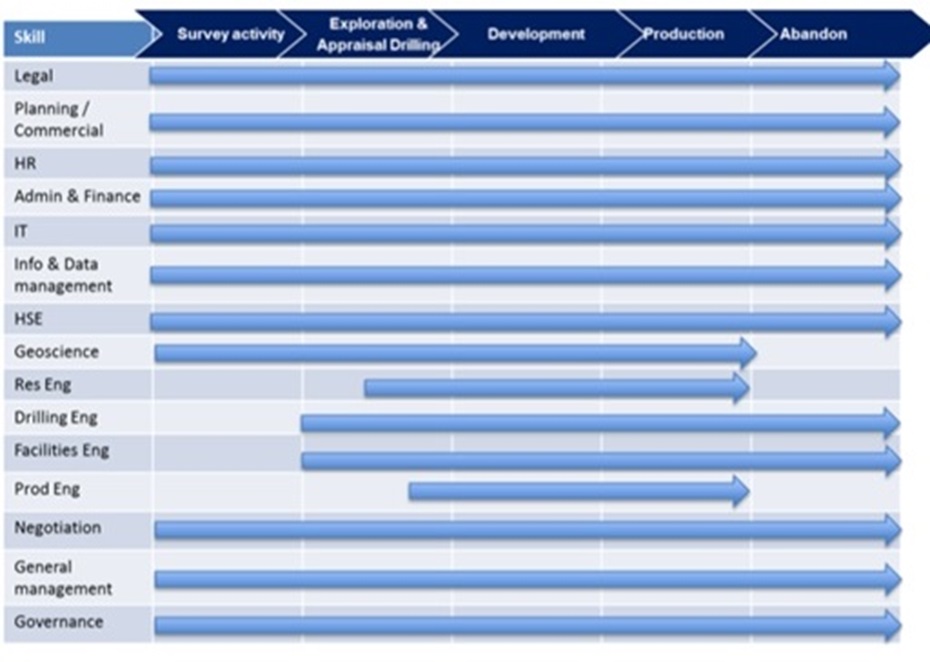By Mohamed Mukhtar Ibrahim, former Minister of Petroleum and Minerals in Somalia
As Somalia embarks on its journey towards oil and gas production, developing expertise in contract negotiation, resource management, environmental monitoring, and fiscal regulation is crucial to effectively managing and regulating this sector. Between October 2022 and September 2024, companies including Coastline Exploration, Liberty Petroleum, Turkish Petroleum Corporation, and Gulfsom entered agreements to explore Somalia’s hydrocarbon potential, highlighting opportunities and the need for robust regulatory oversight.

Coastline was awarded seven blocks, while Liberty, Turkish Petroleum, and Gulfsom each received three blocks, with these areas representing significant potential for boosting Somalia’s economic growth and energy security. However, indications that Coastline may not have met its contractual requirements, resulting in the cancellation of some awarded blocks, underscore the importance of enforcing agreements to maintain investor confidence and ensure sector integrity. To sustain this growth responsibly, Somalia must prioritize the development of technical, environmental, and legal expertise across all phases of the oil cycle—from initial surveys to decommissioning and abandonment.
Overview of Skills Development Levels
Let us begin with a snapshot of Somalia’s human capital level. A two-year collaborative study conducted by the Heritage Institute for Policy Studies and City University of Mogadishu in 2020 assessed human capital development in Somalia, highlighting “education as a crucial factor in individual productivity, future success, and economic development. The study revealed alarming statistics: nearly half of the Somali population is illiterate, placing Somalia among the least literate countries globally. In 2019, primary education had a gross enrollment rate of only 32.7%, leaving about 67% of school-age children out of school, while secondary education enrollment was even lower, at 18.4%. Somalia’s education system struggles with poor quality, lacking qualified teachers, sufficient resources, demand-driven curricula, and adequate infrastructure, all severely limiting educational outcomes and economic potential.”
Somalia’s oil sector is in its infancy, necessitating the development of specialized skills such as geological surveying, petroleum engineering, environmental management, and legal contract negotiation, alongside institutional capacity for regulation, policymaking, and revenue management. Unlike other sectors like health, education, and telecommunications, which have seen steady activity and growth over the years, the oil industry lacks the foundational infrastructure, skilled workforce, and regulatory frameworks necessary to support its development.
Understanding and building the required skills at each level—Awareness, Basic, Intermediate, Advanced, and Expert—is critical to equipping Somalia’s institutions and workforce for tasks across the oil cycle, from geological surveying and exploration to production, processing, and eventual decommissioning. While much of Somalia’s technical and institutional knowledge dissipated due to civil conflict, there is an opportunity to rebuild capacity through targeted training programs, partnerships with international institutions, and the establishment of robust regulatory frameworks to support oil sector management and regulation. Key foundational skills such as governance, financial management, economics, procurement, and IT will underpin effective administration by enabling transparent contract negotiation, efficient revenue management, and streamlined operational oversight across all phases of the oil cycle. Strong communication and English proficiency will also enhance collaboration with international stakeholders, facilitate knowledge transfer, and ensure alignment with global industry standards.
Phases of the Oil Lifecycle and Required Skills

Production Sharing Agreement Phase
Somalia’s historical oil agreements, such as those signed with Chevron and Conoco in 1986, Amoco in 1987, and Shell/Exxon Mobil in 1988, were concession agreements, a model granting companies ownership of extracted resources in exchange for royalties and taxes to the host nation. In contrast, the country transitioned to a Production Sharing Agreement (PSA) model in 2008, where the host nation retains ownership of the resources, and companies share production output after cost recovery. However, Somalia’s current workforce lacks experience negotiating PSAs, as the officials involved in earlier agreements are either retired or deceased, underscoring the need to build local expertise in this modern contractual framework.
Read more: Skill Requirements for Somalia’s Oil Sector
Mohamed Mukhtar Ibrahim, former Minister of Petroleum and Minerals in Somalia.
Email at: mohamed323@hotmail.com


Leave a Reply